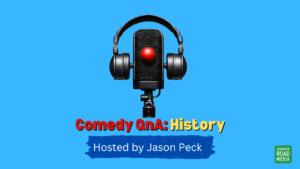I was General Evaluator at a Toastmasters club recently and, half-way through my evaluation, I noticed one of the audience members in the front row falling asleep. I’m not normally known for being the sort of soporific speaker to send someone into a slumber. My mind immediately began racing through my potential options whilst my mouth carried on on auto-pilot. Here were the choices as I saw them:
1) I could draw attention to sleeping beauty
2) I could let sleeping dogs lie.
I chose the latter. Which is quite out of character for me because, having performed stand-up comedy, if something goes wrong I have to address it.
If someone heckles, or sneezes or a waitress drops a glass this creates a certain amount of tension in the audience, which the comic needs to draw attention to. Doing this achieves two things…
Firstly, by pointing it out in some way the comic can defuse the tension of the audience which often results in a laugh. Secondly, it allows the comic to regain the focus of the audience and, therefore, control of the room.
If an audience is more focused on the glass breaking or the weird sneeze, then you’ve lost. Especially if you don’t acknowledge it. The audience will usually think that you haven’t noticed.
It’s generally the professional actor who sticks rigidly to the script and doesn’t acknowledge any mishaps. This was something that I found difficult because, in life, if you do make a mistake you acknowledge it in someway. Easy to do in a modern piece, much harder if you make a mistake doing Shakespeare. You ever tried to improvise in iambic pentameter?
So the comic cannot do that.
But on this occasion I chose to ignore the sleeper for the following reason…
Firstly, he was sat right in the front and couldn’t be seen the other audience members. Secondly, he was only dozing off. If he was snoring loudly, then I would’ve had no choice but to address it as it’s a distraction to the audience and I’d lose control of the room.
Thirdly, if I’d have gone ahead and pointed it out and tried to get a laugh at our narcoleptic-wannabe then this could have potentially created tension in the audience. This is something that you do not want to do unless you have a way out i.e.: when delivering humour, your set-up line creates the tension of anticipation in the audience, which then gets released by your punchline that gets the laugh.
If I’d’ve gone in for the kill I would’ve had the reverse affect. Tension would’ve been created without any means of me having the unifying effect of laughter. The audience would’ve turned against me and sided with our dozer as it would’ve seemed like I was attacking him unnecessarily.
Tip: Analyse your situation and your audience carefully. If something obvious (and loud) occurs, like in the examples cited above, then you will need to address it to re-gain focus. If, on the other hand, YOU are the only one aware of the problem, like my sleeping policeman, then it is probably worth ignoring it and carrying on.




1 ping
[…] Humorist: Public Speaking Advice: Reading Audiences I noticed one of the audience members in the front row falling asleep. I’m not normally known for […]